Julia Flügger, Anja Link, 15.12.2016
Seen from a functional point of view, high-rise buildings seem to be a paradox. High-rises cause technical issues that would not occur in low-rise buildings. In order to make high rises functional, facilities such as air conditioning, vertical transport or waste disposal have to be organized in a special way. In turn, these special solutions create problems of their own, which can affect people’s physical and mental health (e.g. means of escape, hygiene conditions, social isolation, fear of heights).
Research on the effects of living and working in high rise buildings on the mental and physical well-being of people has mostly been conducted between the 1960s and 80s.
In general, the studies do neither favour nor reject the thesis of high rises having negative influences on the health of their inhabitants. Furthermore, some problems are not specifically related to high-rise buildings only but seem to intensify in high-rise structures (e.g. higher crime rates due to a lack of distinction between public and private open spaces). When evaluating the outcomes of the studies, it has to be noted that the choices of the study samples as well as the research designs may sometimes be biased and therefore lead to biased conclusions.
Finally, it can be concluded that high-rise buildings cannot be seen as the silver bullets they often are assumed to be. They create specific problems that can only be solved by technical approaches or – much to the discomfort of their inhabitants – remain being unsolved.
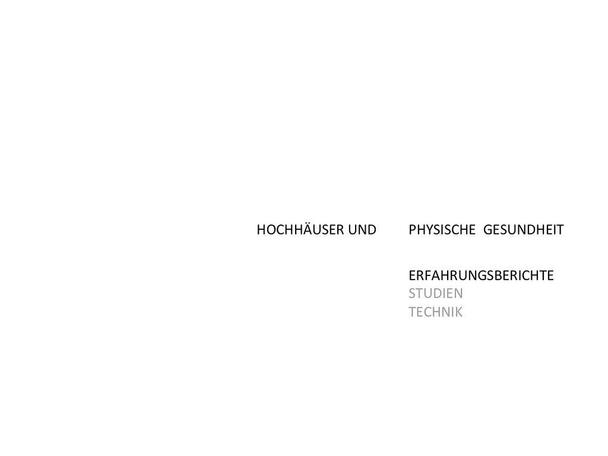
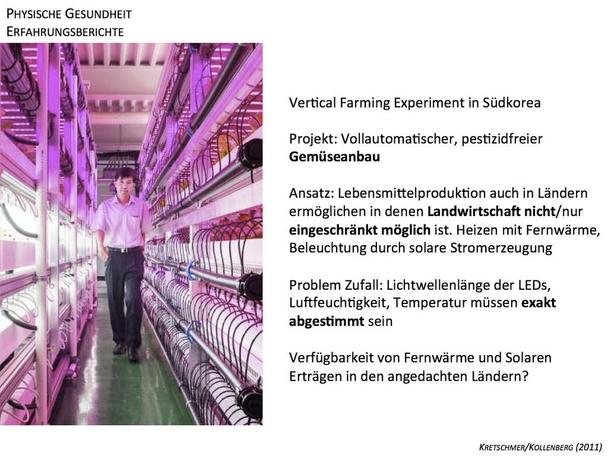
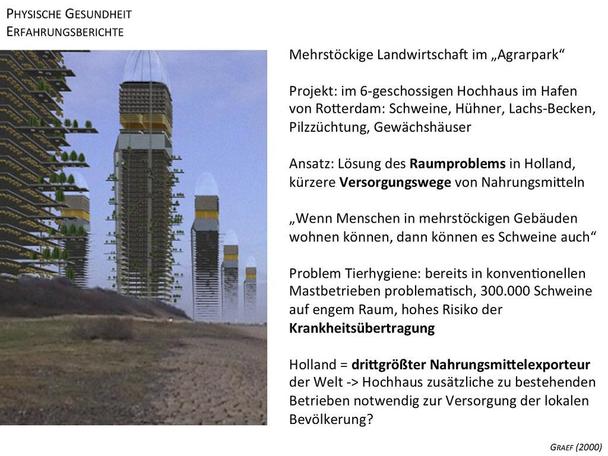
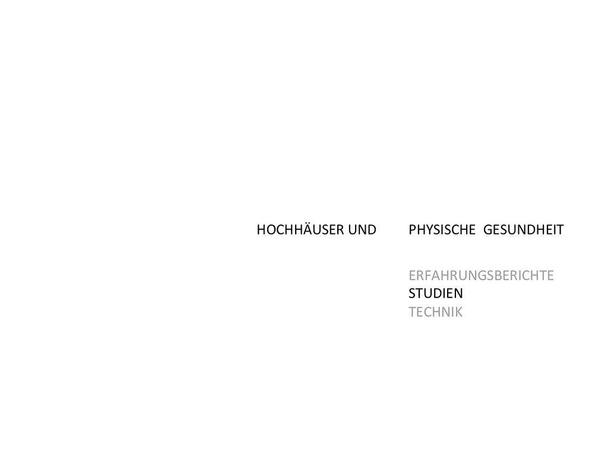
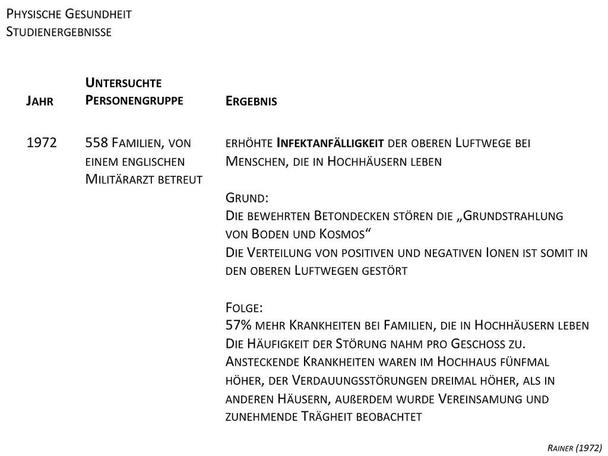
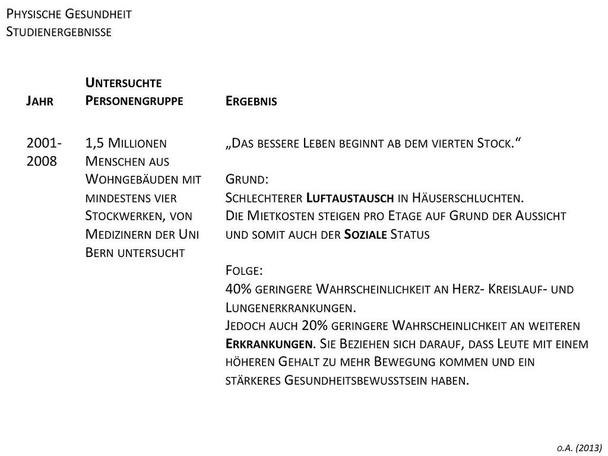
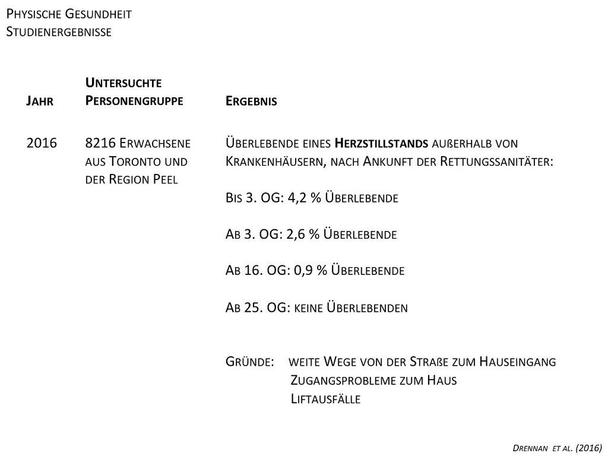
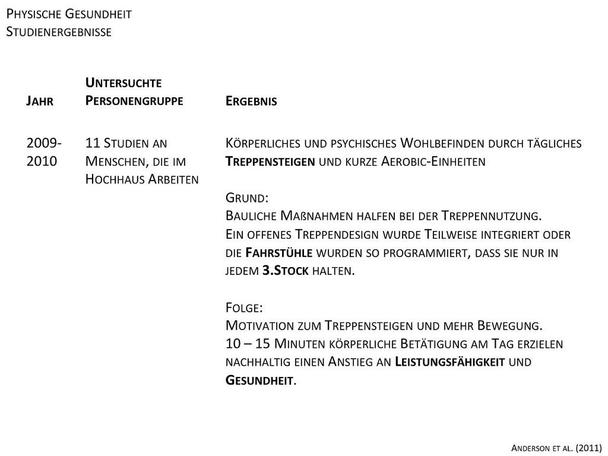
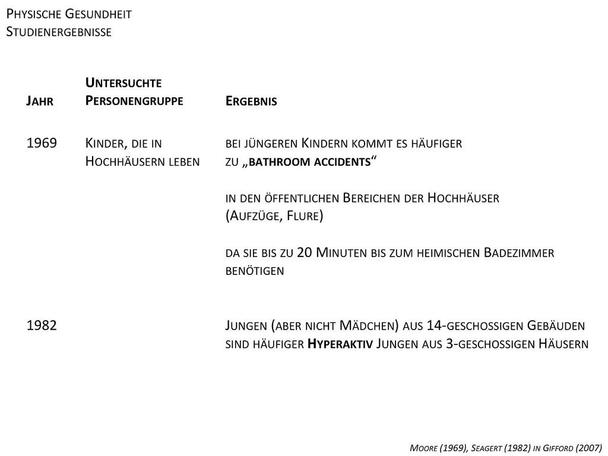
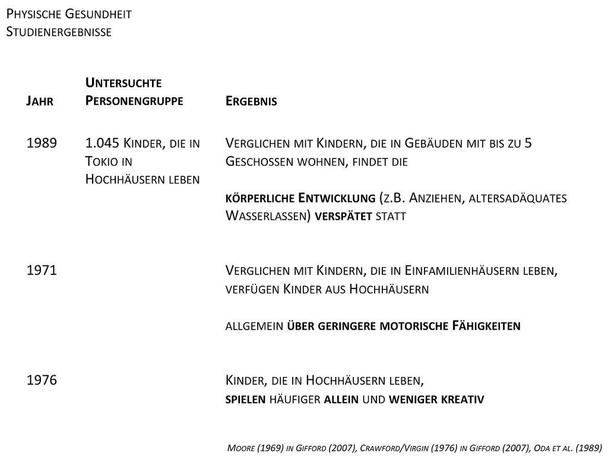
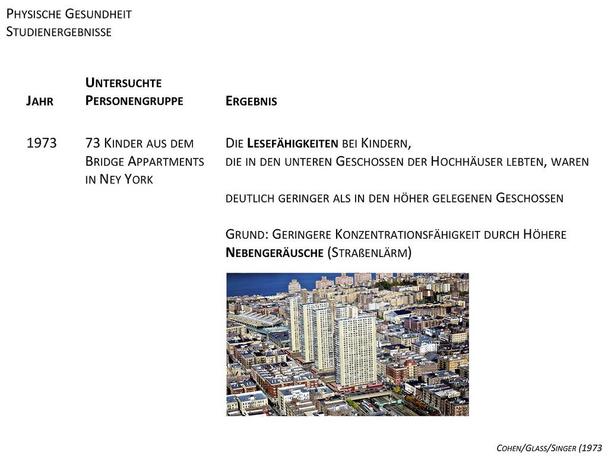
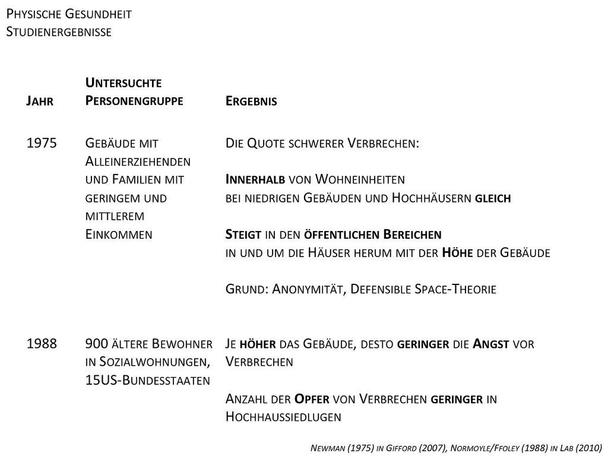
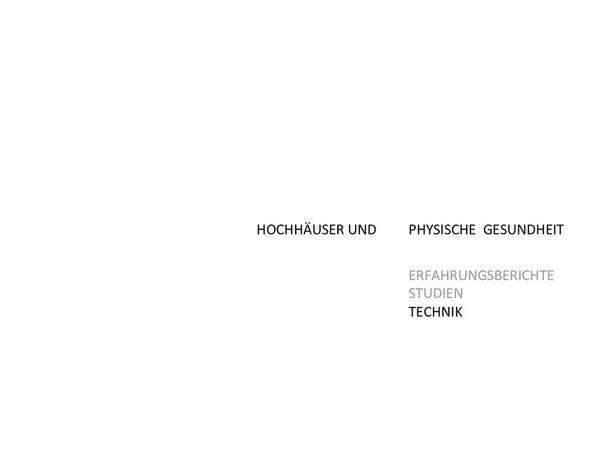
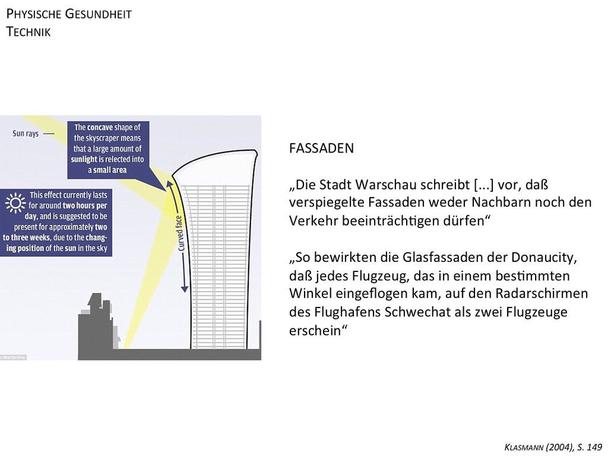
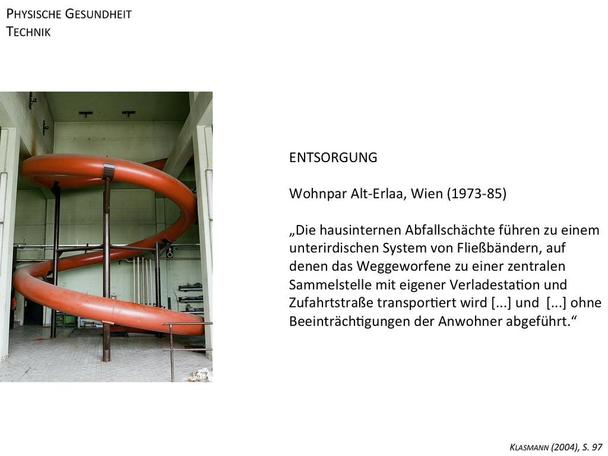
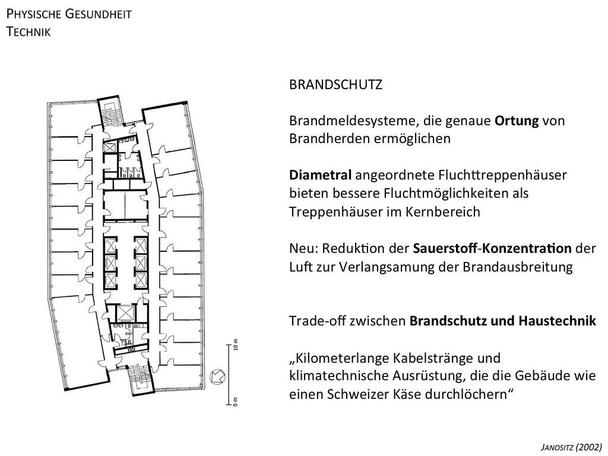
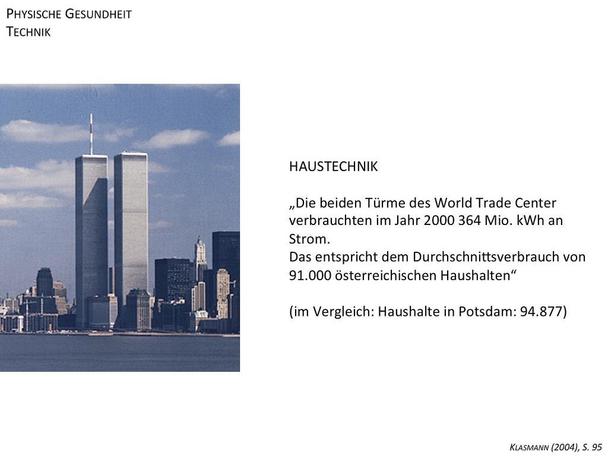
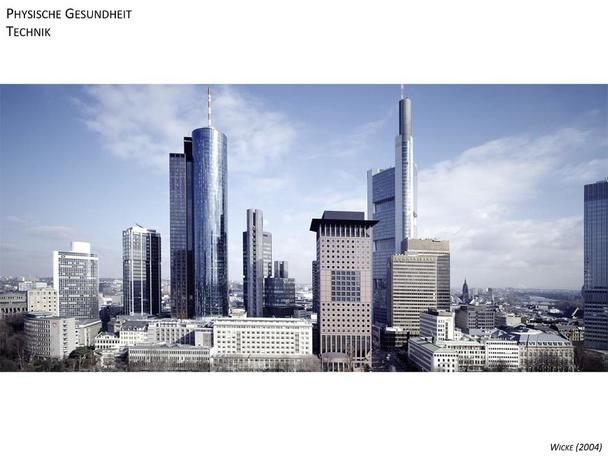
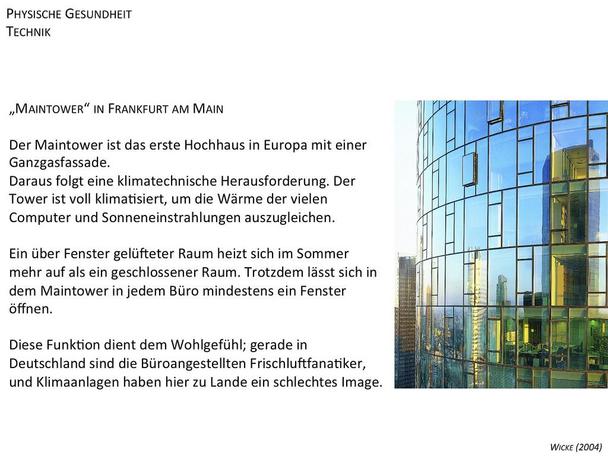
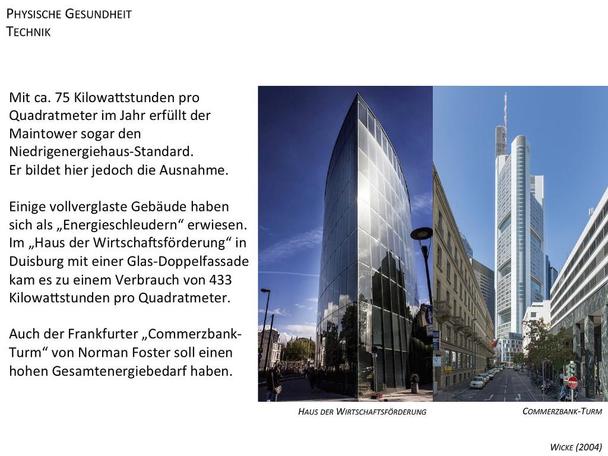
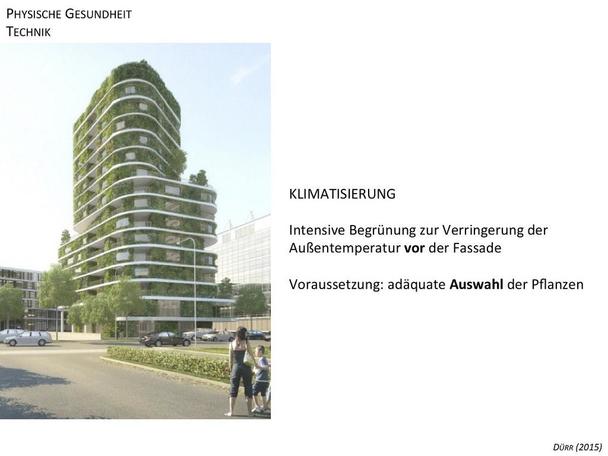



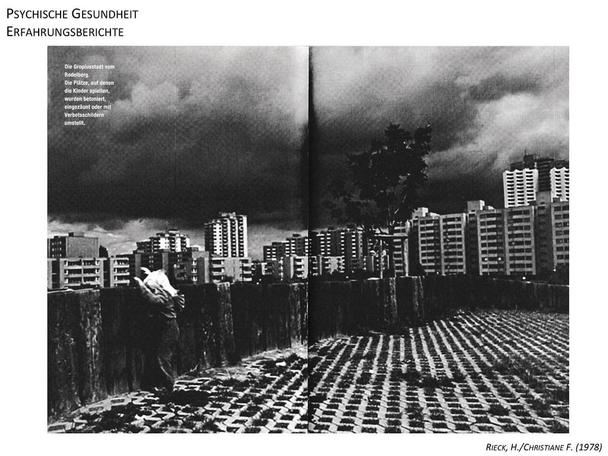


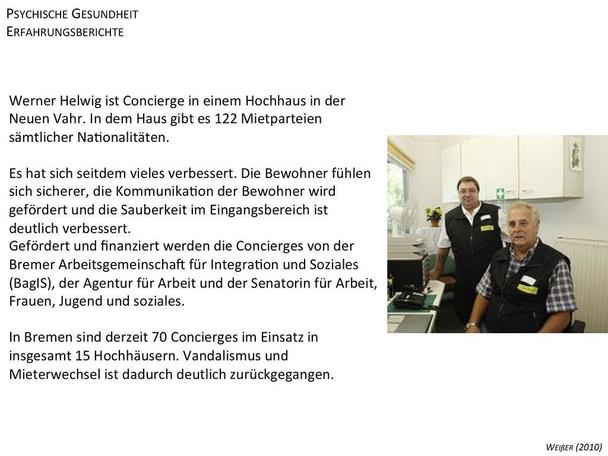

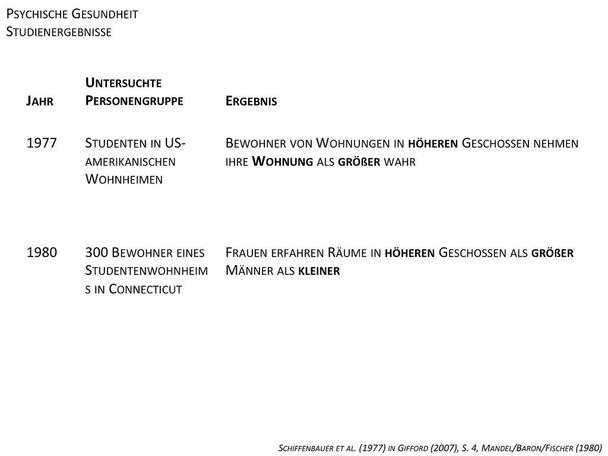
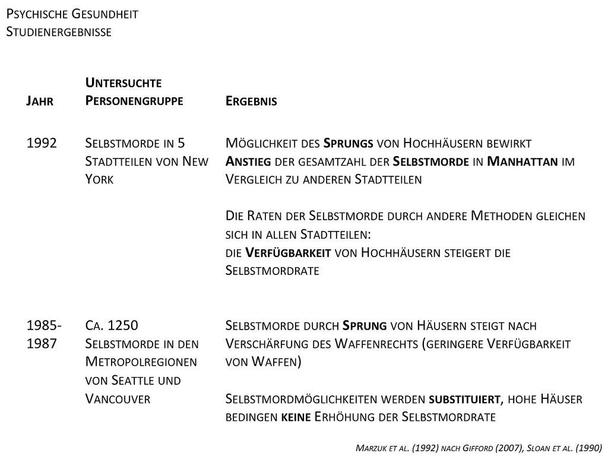
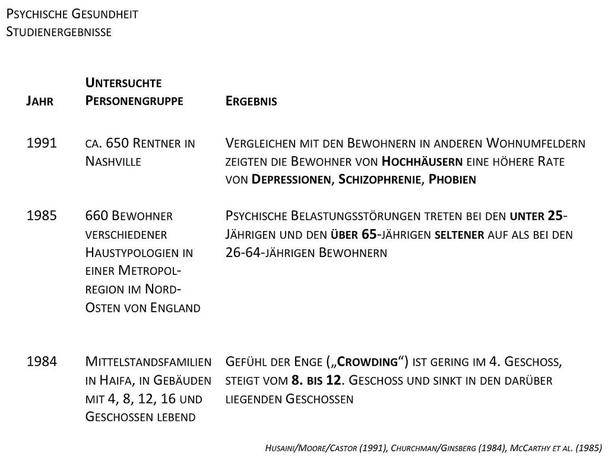
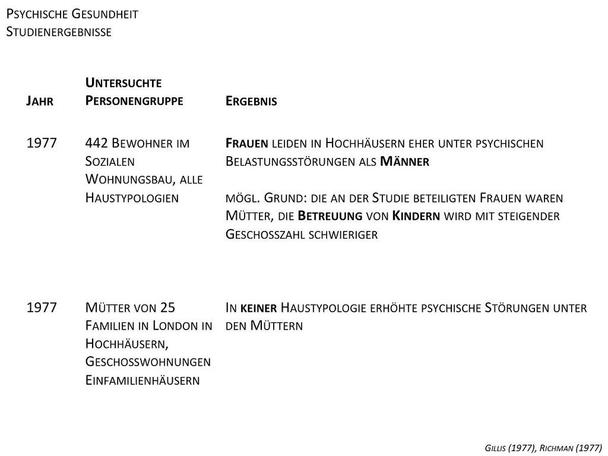


Research on the effects of living and working in high rise buildings on the mental and physical well-being of people has mostly been conducted between the 1960s and 80s.
In general, the studies do neither favour nor reject the thesis of high rises having negative influences on the health of their inhabitants. Furthermore, some problems are not specifically related to high-rise buildings only but seem to intensify in high-rise structures (e.g. higher crime rates due to a lack of distinction between public and private open spaces). When evaluating the outcomes of the studies, it has to be noted that the choices of the study samples as well as the research designs may sometimes be biased and therefore lead to biased conclusions.
Finally, it can be concluded that high-rise buildings cannot be seen as the silver bullets they often are assumed to be. They create specific problems that can only be solved by technical approaches or – much to the discomfort of their inhabitants – remain being unsolved.



































